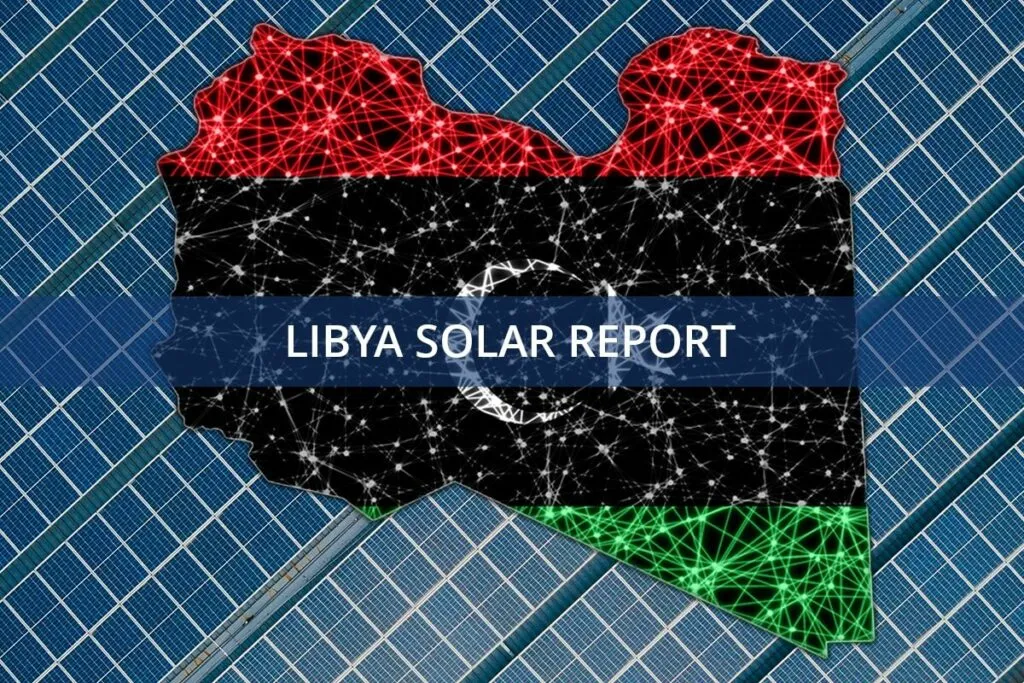Libya Solar Streetlights Initiative: Renewable Energy Project in Qasr Al-Akhyar
Libya has taken a significant step toward renewable energy with the launch of a solar streetlight project in the municipality of Qasr Al-Akhyar, east of Tripoli. This innovative initiative replaces conventional streetlights with solar-powered systems, enhancing public lighting while reducing reliance on traditional energy sources.
A collaborative effort between the Ministry of Local Government and the Renewable Energy Authority, the project aligns with the national strategy to boost renewable energy adoption in public infrastructure. Its deployment marks a pivotal move towards sustainable development and energy conservation in Libya.
Libya Solar Streetlights Project Overview and Implementation
The solar streetlight project involves installing cutting-edge solar lighting systems in key locations, such as the Qasr Al-Akhyar municipality roundabout. Featuring photovoltaic panels and energy-efficient LED lights, these systems harness solar energy to significantly reduce electricity consumption and lower the carbon footprint. This initiative is a crucial part of Libya’s environmental objectives, contributing to a cleaner, more sustainable future.
This project is part of a broader national effort to integrate renewable energy into Libya’s public infrastructure. The Ministry of Local Government and the Renewable Energy Authority are working together to develop and implement projects that promote renewable energy in street lighting and other public facilities.
Key Benefits of Libya Solar Streetlights for Sustainability and Economy
The solar streetlight project offers multiple benefits for Libya, primarily by decreasing the country’s dependence on fossil fuels, which are both costly and environmentally damaging. By shifting to renewable energy, Libya can significantly reduce its greenhouse gas emissions and contribute to global efforts to combat climate change.
The project also enhances public safety by providing reliable lighting, which helps prevent accidents and crime in public spaces. This is especially vital in regions prone to power outages, as solar streetlights continue to function even during blackouts.
Economically, the project offers substantial benefits by reducing the need for grid electricity, thereby lowering operational costs for municipalities. The savings generated can be reinvested in other public services or infrastructure projects.
Additionally, the project fosters job creation in the renewable energy sector. Installing and maintaining solar streetlights requires skilled labor, creating employment opportunities for local communities. This is particularly significant in a country like Libya, where economic diversification is crucial to reducing dependency on oil.
Challenges and Future of Libya Solar Streetlights Expansion
Despite these positive developments, Libya still faces challenges in its transition to renewable energy. The country must invest in the infrastructure and technology needed to support the growth of such projects, and public awareness campaigns are also needed to educate citizens about the benefits of renewable energy.
The success of the solar streetlight project in Qasr Al-Akhyar could serve as a model for other municipalities in Libya. If similar projects are implemented nationwide, Libya could significantly reduce its energy consumption and environmental impact. Libya’s Renewables Surge
In the long term, the solar streetlight initiative could expand to include other types of renewable energy, such as wind or hydropower, further diversifying Libya’s energy portfolio and strengthening the country’s energy security.
Libya Solar Streetlights: A Path Toward Sustainable Development
The launch of the solar streetlight project in Qasr Al-Akhyar is a monumental step toward a sustainable future for Libya. By embracing renewable energy, the country is not only reducing its environmental footprint but also enhancing public safety and creating economic opportunities. This project exemplifies Libya’s commitment to sustainable development and its potential to become a leader in renewable energy within the region. For more insights into Libya’s solar initiatives, visit Libya Solar News Archives.



